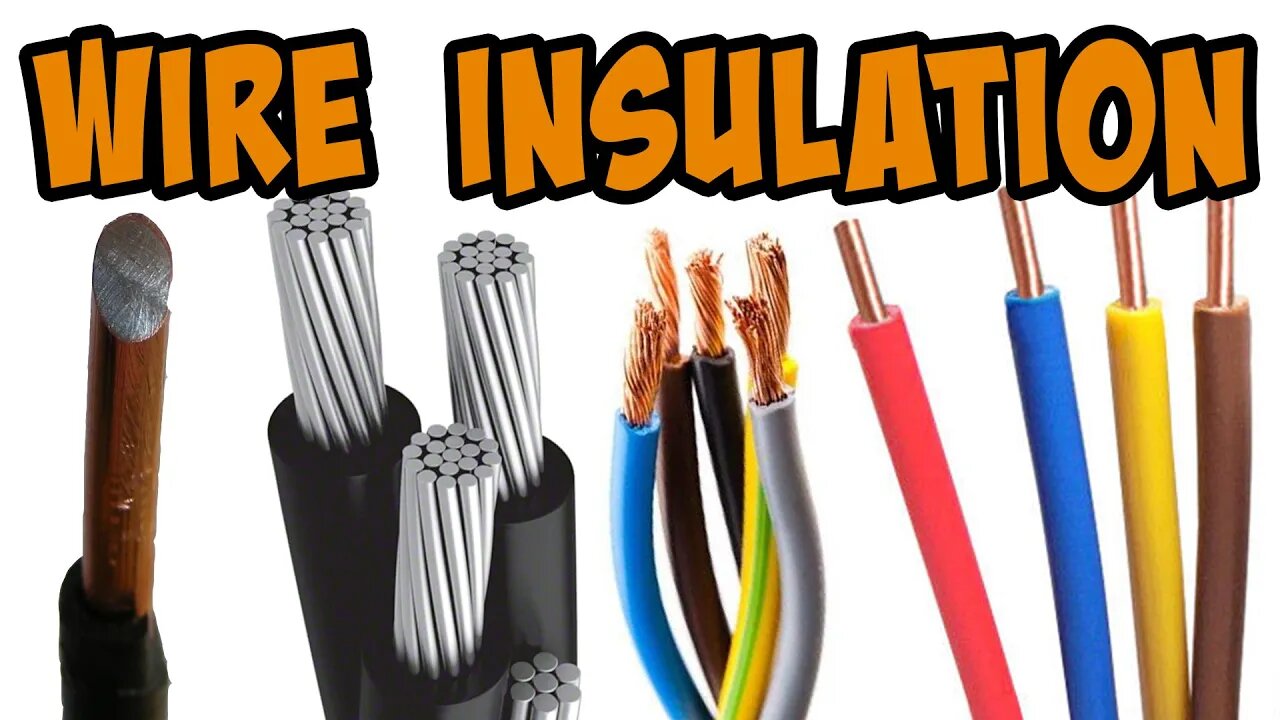Premium Only Content

Why Knowing WIRE INSULATION Types Is Crucial
I've noticed many electrical apprentices out there have a difficult time understanding why there are so many different wire types, and think that each wire is actually different somehow. They're only different in insulation, and here's how.
🥾ARIATS🥾
Save 10% off your first order - https://bit.ly/3c45l41
Dustin’s Favorites - https://bit.ly/2RyBpn6
👾🤖PRACTICE EXAMS🤖👾
https://www.electricianu.com/practice-exams
😎👕MERCH👕😎
https://www.electricianu.com/merchandise
📲👥SOCIALS👥📲
Instagram - https://www.instagram.com/electrician_u
Discord - https://discord.gg/7ykYfbh
Facebook Page - https://www.facebook.com/theelectricianu
Facebook Group - https://bit.ly/2tz7eQh
TikTok - https://www.tiktok.com/@electricianu
🎼🎹🎧THE AMAZING MUSIC AND SOUND FX IN ALL MY VIDEOS IS CUSTOM MADE BY MY CLOSEST HOMEBOY, THE ONE AND ONLY, DRAKE DESCANT....who was actually an electrician at one point 😎🤘🎼🎹🎧
WIRE INSULATION
Every wire is essentially the same, for the most part. You're either working with aluminum, copper, or copper-clad aluminum as an electrician. But before you pull out your wire strippers, it's important to know that each of these has their own special things you should be aware of - but really what's important to know is the type of insulation around each conductor.
In the NEC (National Electrical Code) there are many different tables, charts, and articles that talk about what conductors you may or may not use for certain environments. Most discuss temperature limitations as a primary factor for selection. Many also have environmental reasons for their design. As an electrician, you're responsible for knowing what conductors you should be selecting based on the environment you're working in.
Insulation can and does melt, often. When a conductor is not sized correctly, that conductor can become hotter than it was intended to be, and over a long enough time this can cause the insulation around that conductor to begin to break down. This over-heating can melt the insulation, creating a short-circuit or ground fault. Most of the time a circuit breaker or fuse will stop any major harm from happening, but not always.
Insulation is often over looked. Many electricians just begin wire stripping and think little about what they're removing from the conductor. IT'S SUCH AN IMPORTANT PART!! It's crucial to understand why certain conductors have certain insulation types, and even more important is knowing when to select the correct application for the work you're doing.
#conductor #insulation #wiretypes #electrical
--
Subscribe - https://www.youtube.com/c/electricianu?sub_confirmation=1
IF YOU ENJOY THESE VIDEOS PLEASE SUBSCRIBE AND "LIKE" THEM ABOVE. ALSO CHECK OUT THE ELECTRICIAN U PODCAST ON ITUNES AND SPOTIFY!!
-
 0:57
0:57
Electrician U
1 year agoMy FAVORITE Tester for Electricians - What Hand Tools Are YOU Missing
5.66K -
 1:57:25
1:57:25
Inverted World Live
6 hours agoGiant Eyeball Falls Out of Sky | Ep. 63
105K8 -
 1:47:25
1:47:25
Badlands Media
11 hours agoBaseless Conspiracies Ep. 138
58.5K30 -
 3:00:11
3:00:11
TimcastIRL
7 hours agoTHE WAR IS OVER, Trump Announces CEASEFIRE In Israel Iran War | Timcast IRL
271K203 -
 8:15:59
8:15:59
RalliedLIVE
9 hours ago $9.73 earnedMonday WZ - Specialist Addict Gets Wins
96.6K5 -
 6:31:38
6:31:38
SpartakusLIVE
7 hours agoSpart RETURNS || The Masses REJOICE
70.2K4 -
 2:54:15
2:54:15
Barry Cunningham
8 hours agoBREAKING NEWS: THERE'S SO MUCH WINNING FOR PRESIDENT TRUMP AND AMERICA TONIGHT!!
78.6K63 -
 1:55:04
1:55:04
Adam Does Movies
1 day ago $6.21 earnedIs 28 Years Later A Good Movie? - Live Debate
50.6K2 -
 9:13:04
9:13:04
Spartan
10 hours agoPro Halo Player | Sens Crisis Grind | Ranked Arena, Probably SWTOR at some point
69.6K2 -
 2:40:47
2:40:47
7ninja7
5 hours ago $2.24 earnedIF u have time just say HI
42.2K2